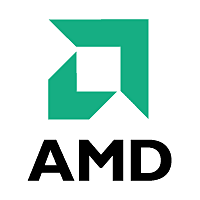Chinese tech giant Tencent had previously announced their customized server chip based on AMD’s Epyc, code named Star Lake (actually Star Ocean or 星星海 in Chinese). During the COVID-19 emergency in China, Tencent had supposedly deployed 100,000 Epyc chips over a very short time.
Now Tencent had further announced their new cloud computing data center located in Qingyuan, Guangdong, as reported by Cntechpost.com, which has a capacity to house more than one million servers. It says:
“Tencent said that this is the largest new infrastructure project to date in the entire South China region and uses Tencent’s fourth-generation T-block technology.
Using this technology, the data center modules can be delivered in a standardized and productized form, making the complex data center construction as simple as building blocks indeed.
In addition, the data center also uses Tencent’s first self-developed Star Lake servers.
At the end of last year, Tencent Cloud announced the Star Lake server platform based on the second–generation AMD EPYC processor at the Tencent Global Digital Ecosystem Conference.
Equipped with the second-generation AMD EPYC processor, the “Star Lake” server platform is Tencent’s first self-designed server for Tencent Cloud.
According to Tencent, “Star Lake” adopts advanced thermal siphoning technology to improve maximum load efficiency by 50 percent. It is designed to optimize cloud computing, storage and networking requirements, and effectively meet 98 percent of Tencent’s cloud application scenarios.”
Tencent Cloud has this web page touting the Qingyuan cloud center, emphasizing the one million servers capacity.
Overclocking.com has a nice write up on this same topic as well. It further noted:
“ a 35% improvement in performance compared to its previous servers equipped with Intel processors is thus noted.
thanks to an architecture in “modules” (T-block). With these methods, the construction cycle of a site would be reduced by more than 80%.
The roof of the T-bloc data center is equipped with photovoltaic cells, which can provide 100% of the power in optimal weather conditions.”
Finally, TheNextPlatform has an excellent summary on how well Epyc is doing in the cloud, specifically mentioning Amazon, Google, IBM, Microsoft, Oracle and Tencent, here.
AMD’s Renoir laptops are selling very well. The one year old desktop chips are holding well against Intel’s brand new CPUs.
Zen 2 desktop APUs are launching in July, and leaks are looking good on their performance. Even if they are only available for OEMs, they will make welcomed inroad in the OEM desktop segment, long dominated by Intel.
Soon we can look forward to MI 100/200 in the data center GPU space, not to mention big Navi for the consumers.
I am still optimistic for a nice Q2 beat and a good H2 projection. We will know by the end of this month!

